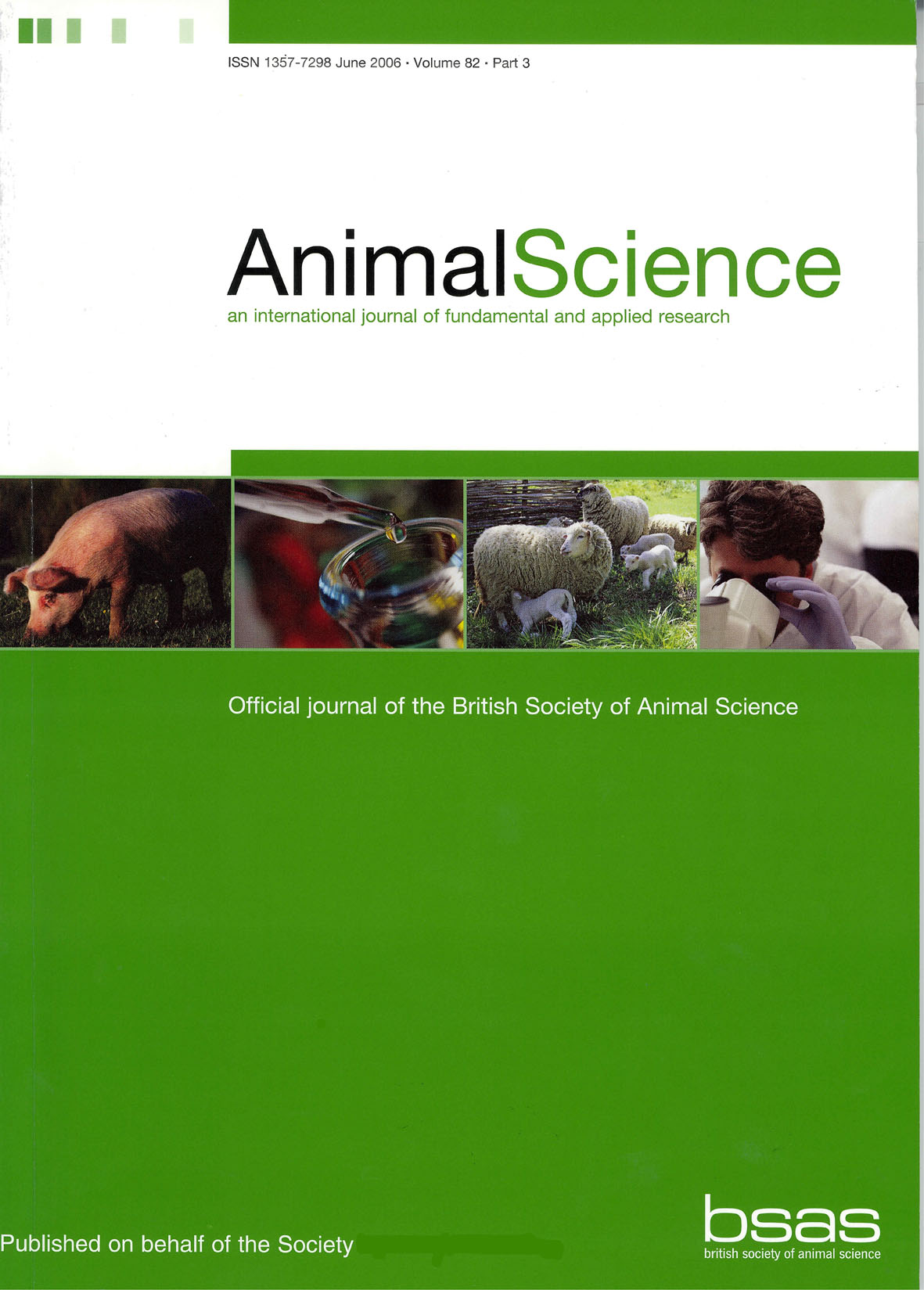Article contents
The effect of digestible undergradable protein (DUP) content of concentrates on colostrum production and lamb performance of triplet-bearing ewes on grass-based diets during late pregnancy
Published online by Cambridge University Press: 09 March 2007
Abstract
An experiment was carried out to investigate the effects of increasing the digestible undegradable protein (DUP) concentration of concentrates on colostrum production and lamb output from prolific ewe breed types. Sixty triplet-bearing ewes with a mean condition score of 3.75 were allocated to one of five treatments (no. =; 12) for the final 6 weeks of pregnancy. Four of the treatments were offered a restricted grass diet (0.6 kg dry matter (DM) per day) plus one of four isoenergetic and isonitrogenous concentrates (0.56 kg DM per day) that were formulated to provide 25 (P25); 40 (P40); 75 (P75) and 95 (P95) g DUP/kg DM. Control ewes were offered a grass-only diet with the aim of achieving an equivalent total DM intake (1.16 kg DM per day). Concentrate composition had no effect on total diet DM, crude protein or metabolizable energy intakes, but the intake of DUP increased with increasing concentrate DUP level (P < 0.001). Supplementing grass with concentrates led to significant reductions in plasma β-hydroxybutyrate (P < 0.05) and non-esterified fatty acids(P < 0.001) concentrations. Plasma urea concentration tended to be negatively and linearly related to the concentrate DUP level (P < 0.1). Colostrum production and composition were not affected by concentrate type, except for the concentration of gross energy which was highest for P40 ewes. Concentrate feeding led to significant (P < 0.05) increases in colostrum yield 18 h post lambing and colostral outputs of ash, crude protein, total solids and gross energy but resulted in a lower (P < 0.05) colostral immunoglobulin G concentration. Lamb birth weight and total litter weight were not affected by late pregnancy feeding regime. However lamb survival to weaning was reduced significantly (P < 0.05) for P25 and control ewes, resulting in lower levels of lamb output at weaning. The results from this study indicate that offering rumen undegradable rather than rumen degradable protein has no effect on colostrum production and lamb performance when ewes are offered high quality grass-based diets in late pregnancy.
- Type
- Research Article
- Information
- Copyright
- Copyright © British Society of Animal Science 2005
References
- 11
- Cited by


